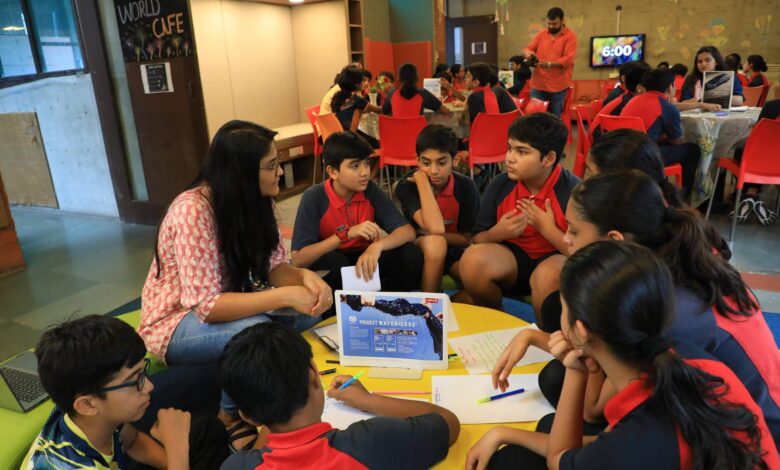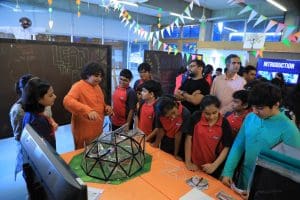Dive Beyond Theory to Learn Essential 21st Century Skills

Mr Vardan Kabra, Co-founder & Head, Fountainhead School
Imagine you have the best teacher in the world who is very thorough with both content to be delivered and is also able to deliver the content articulately based on the diverse needs of the students. Imagine that this teacher has a set of students who are extremely good and self-motivated except that they are novices at the “topic” that they need to learn today. The teacher delivers the lecture with a lot of enthusiasm supported by many illustrations, multimedia material, written handouts and allows for a lot of interaction in the classroom, amongst students and with the teacher. The students have learnt the lesson thoroughly and in a pop quiz given at the end of the class, the students ace the test (as you would expect with such a combination of a brilliant teacher and accomplished learners).
The teacher is very excited about the quality of learning and is convinced that it is time for the students to do a practical test of the topic learnt. A detailed manual of instructions is also handed out to students before they start the test. The students are also very enthusiastic and eager to take the test, as they are sure they will ace just like the pop quiz. But what happens is that all the students die within the first few minutes of the test. And when I say die, I mean literally, not figuratively.
Whoa! What just happened here? Well, that’s because the topic that they were supposed to learn was swimming. Thankfully, this is just a hypothetical story albeit a rather macabre one. I just used this example because “death is the best teacher” – in this case in a figurative sense only.
I am sure this sort of absurdity has never happened anywhere in the world as far as swimming is concerned. No one in their right mind would ever think that you can learn swimming by listening to a set of instructions, by watching a set of videos, perhaps by even doing shadow practice.
No matter how well read students are, they will drown if they don’t actually practise swimming in baby steps first – whether in a pool or in the big wide ocean. Therefore the notion that anyone who has “mastered” swimming in the classroom could swim is an absurd one. No one reasonable will advocate such an absurdity.

Yet this sort of absurdity is exactly what is propagated in pretty much all the educational systems to teach topics to students. The real point of the swimming example is to illustrate the fundamental difference between learning skills by doing versus learning facts by listening and memorising content. Listening-based teaching systems are the norm today – whether it’s the teacher talking in conventional systems or even students discussing in a more progressive setting. The focus has to change to learning skills and the right attitudes and that can only be done through practice.
How to be a good communicator, or how to collaborate, how to get into depth of something by hours and hours of research, analysis and synthesis, how to manage time and emotions, programming, experimentation or trading, mastering the art of good visual, written and oral communication, learning teamwork and leadership, research skills are all essential skills which can be learnt only through practice, by making mistakes, by asking for feedback, working on that feedback and improving skills – the process that any competent sports coach or arts tutor will take with their students.
One of the best ways to facilitate learning of such 21st century skills is by adopting a Project-Based Learning (PBL) approach, whereby students solve real life problems or design or innovate to meet real needs. There are many nuances to how to do PBL effectively, with many progressive schools across the world following this model. If students were to take on a personal project of learning swimming, it goes without saying that most of their time would be spent in water, and not in the classroom.






